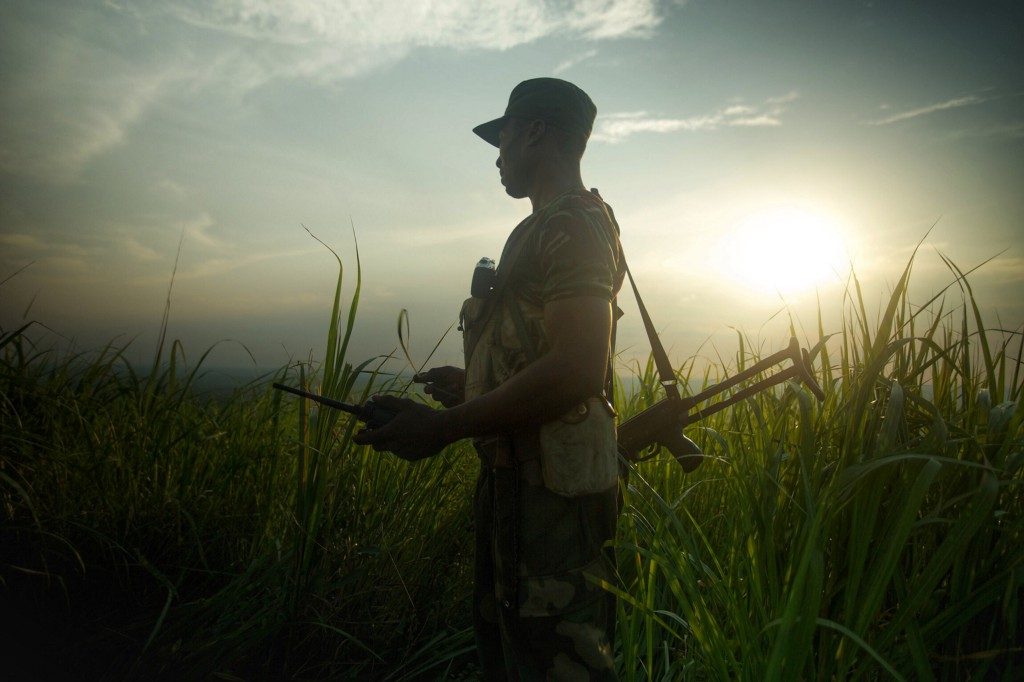Kate Brooks is an American photojournalist who has chronicled conflict and human rights issues for nearly two decades. Her introspective collection of essays and photographs, “In the Light of Darkness: A Photographer’s Journey After 9/11,” was selected as one of the best photography books of 2011. She studied the Pan-African poaching epidemic under a Knight Wallace Fellowship at the University of Michigan before embarking on “The Last Animals.”
“The Last Animals” will premiere at the 2017 Tribeca Film Festival on April 22.
W&H: Describe the film for us in your own words.
KB: “The Last Animals” is a story about a heroic group of people who go to all lengths to save elephants and rhinos from extinction, as well as the criminal networks they are fighting.
W&H: What drew you to this story?
KB: In 2010, I went to Kenya on a long planned vacation after embedding with a medevac unit at Kandahar Airfield in Afghanistan. In the Maasai Mara National Reserve, I was able to heal from some of the inhumanity I had witnessed.
Upon seeing a herd of wild elephants for the first time, I was reminded in an instant that, in spite of all the human destruction on the planet, there was still some natural order. That experience ultimately lead me to want to help them.
W&H: What do you want people to think about when they are leaving the theater?
KB: As a global community, it is critical that we come together to close legal ivory and rhino horn markets and do everything in our power to end the illegal wildlife trade.
By seeing this film, I hope that people will have a better understanding of the issues at large, connect with them on a personal level, and that, by seeing what rangers sacrifice, they’ll be inspired to get involved and make a difference.
W&H: What was the biggest challenge in making the film?
KB: The biggest challenge was doing justice to such an important story.
Production spanned four continents, and the film is in five languages. The logistics were daunting. Tracking and documenting character and story developments — as things concurrently developed on different time zones — on different corners of the globe was undoubtedly a challenge. Financing the film at various stages created hurdles the size of mountains.
There were also all the risks that come from working in Africa, working undercover, and working in areas of conflict.
W&H: How did you get your film funded? Share some insights into how you got the film made.
KB: I started the film with seed funding off the back of my Knight Wallace Fellowship at the University of Michigan. I then self-funded, did a Kickstarter campaign, and found donors.
Eventually, the project landed in Hollywood; Laurie David came on as an executive producer, and a team of strong women followed, from Mari Snyder Johnson to Geralyn Dreyfous, to name just a couple from the long list. Foxtail Entertainment and The British Film Company later joined the team and got the film to the finish line.
In short, it took a global village and the generosity and commitment of a lot of people who care deeply about the issue.
W&H: What does it mean for you to have your film play at Tribeca?
KB: I love New York, and screening this film in a city that has traditionally been one of the biggest hotspots for the illegal wildlife trade — due to its fashion, art culture, and inherent wealth — is also very significant. I hope New Yorkers will feel proud that New York is one of the six states in the U.S. that banned the ivory trade.
Also, the festival started after the 9/11 attacks to help rebuild Tribeca, and I started my career as a young war correspondent at that time. I then turned my attention to film because I wanted to create art with a message that endeavors to protect beauty and life, so this has personal meaning.
W&H: What’s the best and worst advice you’ve received?
KB: The best advice: “Just go out and do it! Passion sparks passion. Everything else will follow. You’ll never know if you don’t try, but you have to believe it’s possible.”
The worst advice: “If a film fails, it falls on the producers.” In documentary filmmaking, directors bear the weight of the full production. Full stop.
W&H: What advice do you have for other female directors?
KB: My advice to any first-time independent film director is that you have to be a rain dancer, dancing tirelessly in the sun for as long as it takes for others to hear the music. You then wrangle them into the rhythm until the sky opens and everyone can say, “We did it.”
You have to have commitment as solid as steel, believing in your project with so much passion that every cell in your body is driving you. You have to be in a place where not doing it is simply not an option.
W&H: Name your favorite woman-directed film and why.
KB: I am a big fan of Kathryn Bigelow due to the hard subject matter she takes on. Her portrayal of what it’s like to be surrounded by IEDs in “Hurt Locker” is as uncanny as it is real.
W&H: There have been significant conversations over the last couple of years about increasing the amount of opportunities for women directors yet the numbers have not increased. Are you optimistic about the possibilities for change? Share any thoughts you might have.
KB: Hell yes! Of course I am optimistic about the future of women in filmmaking. This year nearly 40 percent of the films at Tribeca were directed by women. At Hot Docs, I am on a panel with other first-time directors that is entirely comprised of women.
You should probably be asking me if I am worried that male directors might become an endangered species.







